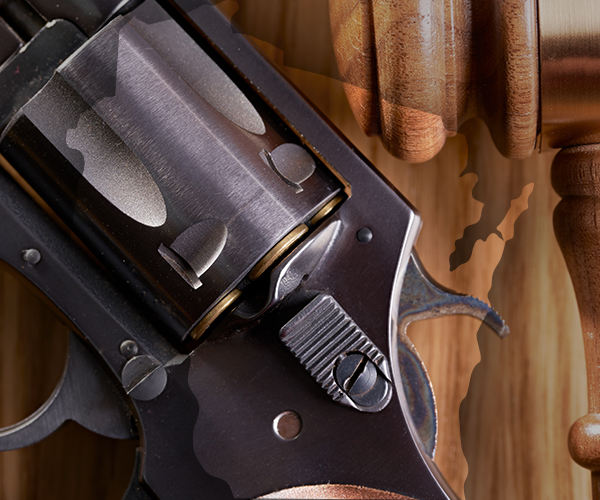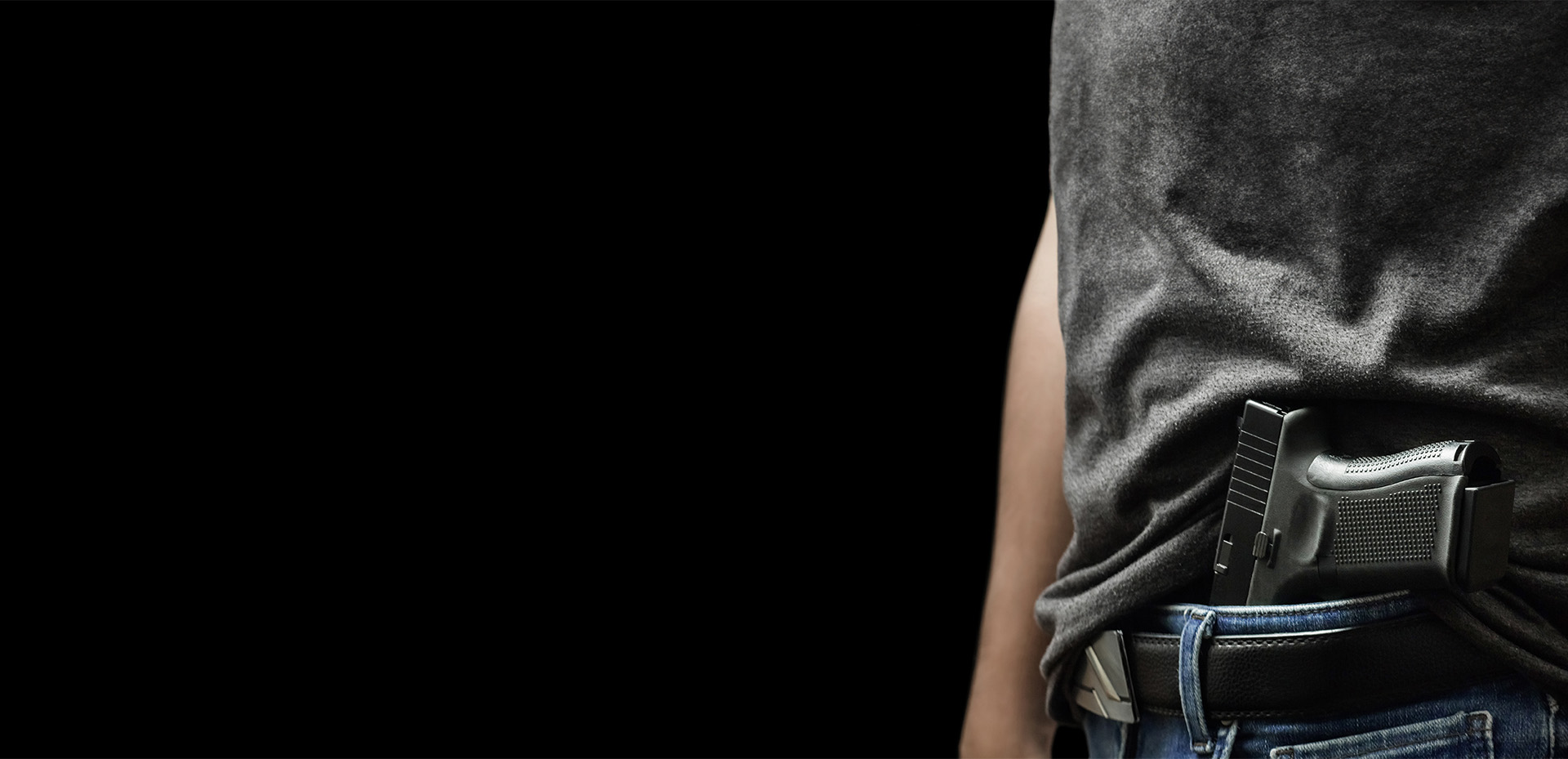Wisconsin gun laws allow individuals to carry a concealed weapon anywhere where guns are not specifically forbidden. However, you could be charged with a Class A Misdemeanor if you are carrying a concealed and dangerous weapon outside your home, your business, or land that you own or lease.
Not Quite Everything You Need to Know About Wisconsin Gun Laws
Wisconsin’s gun laws cover a broad range of regulations, from concealed carry and transportation of firearms to restrictions on where you can legally carry. Understanding these laws is crucial for gun owners who want to exercise their Second Amendment rights while staying within legal boundaries.
Before we dive into the specifics, it is important to remember this guide is for common informational purposes only. Wisconsin gun laws may change, and it is up to you to stay informed. DO NOT rely solely on this page for legal authority. Not every law you need to know to legally carry or transport weapons is included here. If you notice outdated information or have any questions, contact our firearm attorneys for accurate legal guidance.

Wisconsin’s Concealed Carry Law - Who Can Legally Carry?
Under Wisconsin Statute 941.23(2), carrying a concealed weapon without a valid permit is a Class A Misdemeanor, punishable by up to nine months of jail and a fine of up to $10,000. However, there are exceptions:
- You can carry a concealed weapon within your own home, business, or land that you own or lease.
- Law enforcement officers and qualified out-of-state officers are exempt from this restriction.
Individuals under the age of 21 are strictly prohibited from carrying any concealed weapon, even if they would otherwise qualify under other laws.
The Definition of “Carry” Under Wisconsin Law
Wisconsin law defined “carrying” as “going armed with a weapon.” Courts have interpreted this to mean:
- The firearm is on your person (e.g., in a holster, pocket, or clothing), making it readily accessible for immediate use.
- The firearm is within your immediate reach (e.g., in a purse, backpack, or car glove box), making it available for quick access in case of an emergency
Legal precedent from State v. Hamden (2003) clarified that carrying a firearm in your home or business is protected under constitutional self-defense rights, particularly when there is no practical alternative for safe storage. However, State v. Keith (1993) ruled that a gun in a purse on a porch still constituted “going armed” because it was immediately accessible, even without physically holding it.
Further interpretation by Wisconsin courts has emphasized that whether a weapon is “going armed” is case-dependent, considering proximity, accessibility, and the owner’s intent. Understanding the nuances is crucial for legal firearm carry in Wisconsin.
What If You Have a Concealed Carry Permit?
If you have a valid Wisconsin Concealed Carry License (CCL), you can legally carry a concealed weapon in most locations, except where specifically prohibited. However, you can lose your CCL for various reasons, including:
- Conviction of a felony, domestic violence offense, or certain misdemeanor crimes.
- Being subject to a restraining order, particularly those involving allegations of violence or threats.
- Having your license suspended or revoked due to violations of concealed carry laws.
- Being found to be a danger to yourself or others, which may include mental health commitments or substance abuse issues.
- Providing false information on your concealed carry application or failing to meet renewal requirements.
There were 1,215 Conceal Carry Licenses revoked in 2023. Carrying without a valid license could result in criminal charges.

What Weapons Are Legal to Carry in a Concealed Manner in Wisconsin?
According to Wisconsin Statute 175.60(1)(j)(j), a “weapon” for concealed carry purposes includes:
Handguns: Any firearm designed to be fired with one hand
Electric Weapons: Such as tasers, which incapacitate an attacker using electric shock
Billy clubs: Impact weapons that can be used for self-defense
However, certain firearms and weapons are prohibited from concealed carry, including:
- Machine guns
- Short-barreled rifles
- Short-barreled shotguns
Because short-barreled rifles and shotguns are explicitly illegal to carry while concealed, it is assumed that full-length rifles and shotguns also cannot be carried while concealed under Wisconsin law.
Where You CANNOT Carry a Concealed Weapon in Wisconsin
Even with a valid CCL, concealed carry is prohibited in the following locations:
- Law Enforcement Offices: Police stations, sheriff’s departments, state patrol stations, etc.
- Correctional Facilities: Prisons, jails, houses of correction, secure treatment centers, etc.
- Courthouses: Municipal courtrooms when court is in session, and any county, state, or federal courthouse
- Schools and School Grounds: Unless unloaded and encased in a vehicle
- Beyond Airport Security Checkpoints
- Any other location where concealed carry is explicitly prohibited
Violating these location restrictions can result in serious criminal charges, even if you have a valid concealed carry permit.
School Zones and Firearms - What You Need to Know
Can You Carry a Firearm Near a School?
Under federal and state law, carrying a firearm within 1,000 feet of school grounds is illegal unless:
- You are a law enforcement officer
- You have written permission from the school
- The gun is unloaded and encased or locked in a gun rack inside a vehicle
Violations of this law can result in significant criminal penalties.
Transporting Firearms in Wisconsin - What’s Legal and What’s Not
Can You Leave Your Gun in Your Car in Wisconsin?
Yes, but only under specific conditions:
- A handgun must be encased (e.g. in a glove box, case, or locked container) while in a vehicle.
- Long guns must be unloaded and encased at all times while in a vehicle.
- Openly displaying a gun inside a vehicle can still be considered illegal concealment.
Key case law:
- State v. Fry (1986): Keeping a gun in a locked glove box was ruled unlawful concealment.
- State v. Walls (1994): A firearm in plain sight inside a vehicle was still considered unlawfully concealed under Wisconsin law.
Firearm Definitions Under Wisconsin Law
Wisconsin Statute 941.28 defines different types of firearms:
Rifle: A firearm fired from the shoulder or hip that fires a single projectile per trigger pull.
Shotgun: A firearm designed to fire a ball shot or a single projectile from a smooth bore.
Short-Barreled Rifle: A rifle with a barrel length under 16 inches or a total length under 26 inches.
Short-Barreled Shotgun: A shotgun with a barrel length under 18 inches or a total length under 26 inches.
Carrying short-barreled rifles or shotguns in a concealed manner is illegal.
Intoxicated Possession of a Firearm Laws in Wisconsin
Wisconsin law prohibits carrying or possessing a firearm while under the influence of alcohol or drugs, as outlined in Wisconsin Statute 941.20(1)(b). Violating this law is classified as a Class A Misdemeanor, which carries potential penalties of up to 9 months in jail and a fine of up to $10,000.
A conviction can result in the loss of firearm rights, making it illegal to possess or purchase firearms in the future. Repeat offenses or cases involving reckless endangerment may lead to felony charges, additional fines, and significantly increasing potential penalties including extended imprisonment.
You Are Only Guilty If You Are Convicted™
Grieve law has experienced gun attorneys who zealously advocate for your 2nd amendment rights. We help Wisconsin gun owners with:
Remember, This Is an Incomplete Guide to Wisconsin Gun Laws
Wisconsin gun laws are complex, and mistakes can result in severe legal consequences. If you have any concerns about concealed carry laws, firearm transport, or weapons charges, contact Grieve Law’s Milwaukee gun lawyers for expert legal representation.
Schedule a free consultation today to protect your rights.
Grieve Law Criminal Defense Lawyers

- Tom Grieve Criminal Defense & Divorce Attorney
- Amy Scholz Criminal Defense Attorney
- Glenn Gaskill Criminal Defense Attorney
- Joseph Kennedy Criminal Defense & Divorce Attorney
- Eric Habich Criminal Defense Attorney
- Kirk R. Emick Criminal Defense Attorney
- Morgan Risseeuw Criminal Defense Attorney
- Adam J. Kachelski Criminal Defense & Divorce Attorney
- Jeremy Chavez Criminal Defense & Divorce Attorney
- Stephannie Guzy Criminal Defense & Divorce Attorney
- Paul K. Kuszel Criminal Defense Attorney
- Julian Marrufo Criminal Defense Attorney
- Jeremy Evans Criminal Defense Attorney
- Kaitlin Grasswick Criminal Defense & Divorce Attorney
- Lauren Evans Criminal Defense Attorney
- Madison Kelly Criminal Defense Attorney
Divergent Family Law Attorneys

- Tom Grieve Criminal Defense & Divorce Attorney
- Joseph Kennedy Criminal Defense & Divorce Attorney
- Adam J. Kachelski Criminal Defense & Divorce Attorney
- Jeremy Chavez Criminal Defense & Divorce Attorney
- Stephannie Guzy Criminal Defense & Divorce Attorney
- Chase Cripe Divorce Attorney
- Hannah Rodriguez Divorce Attorney
- Genelle Johnson Divorce Attorney
- Hannah Smet Divorce Attorney